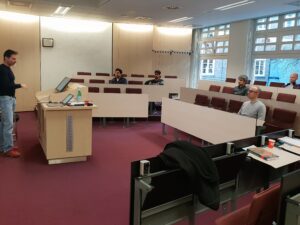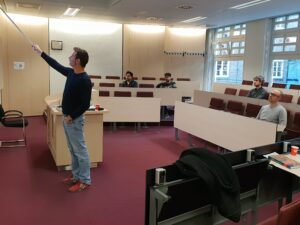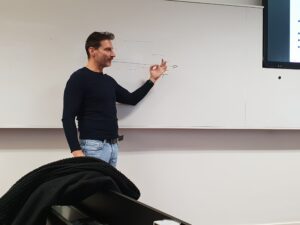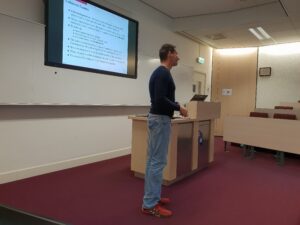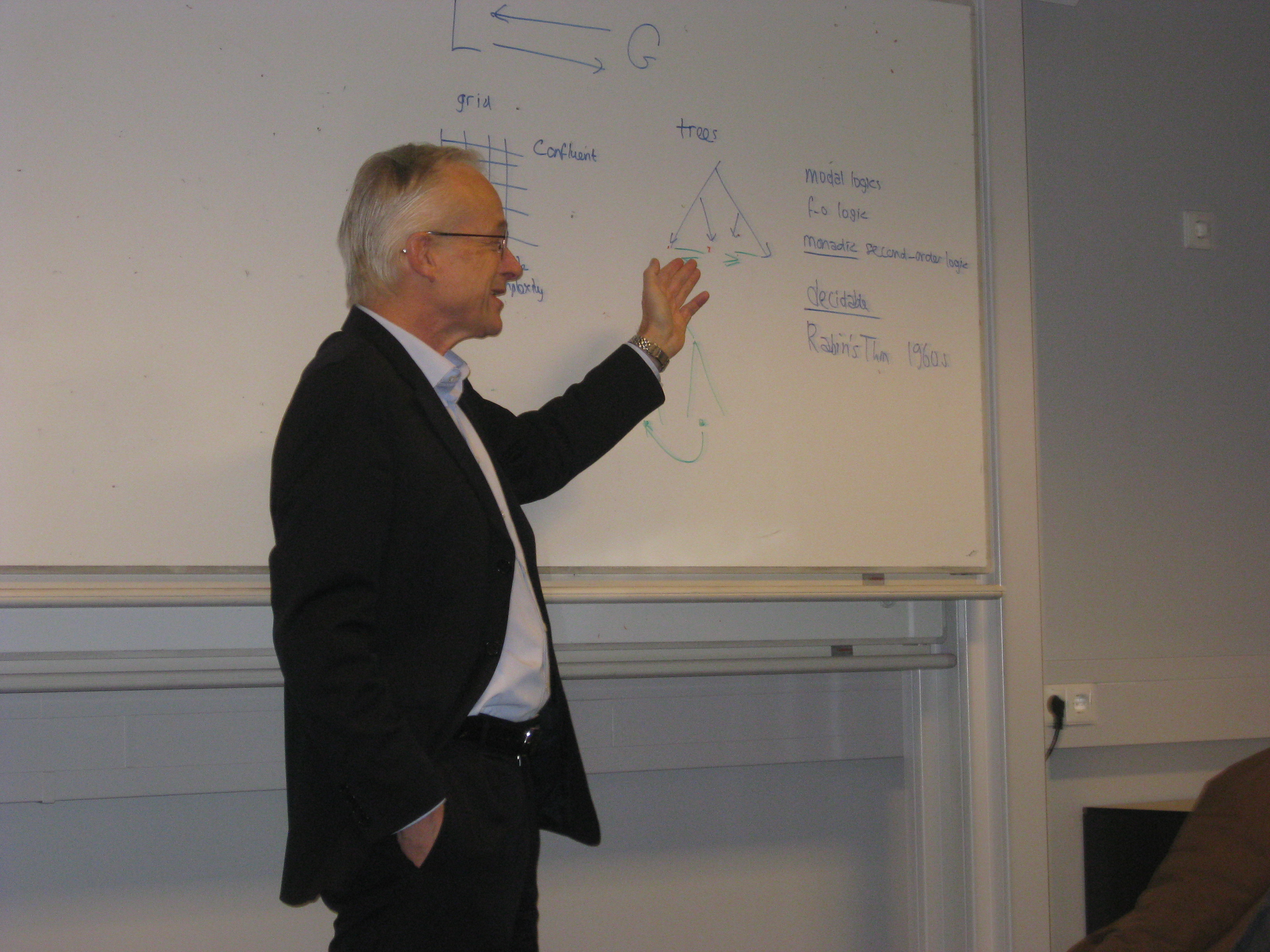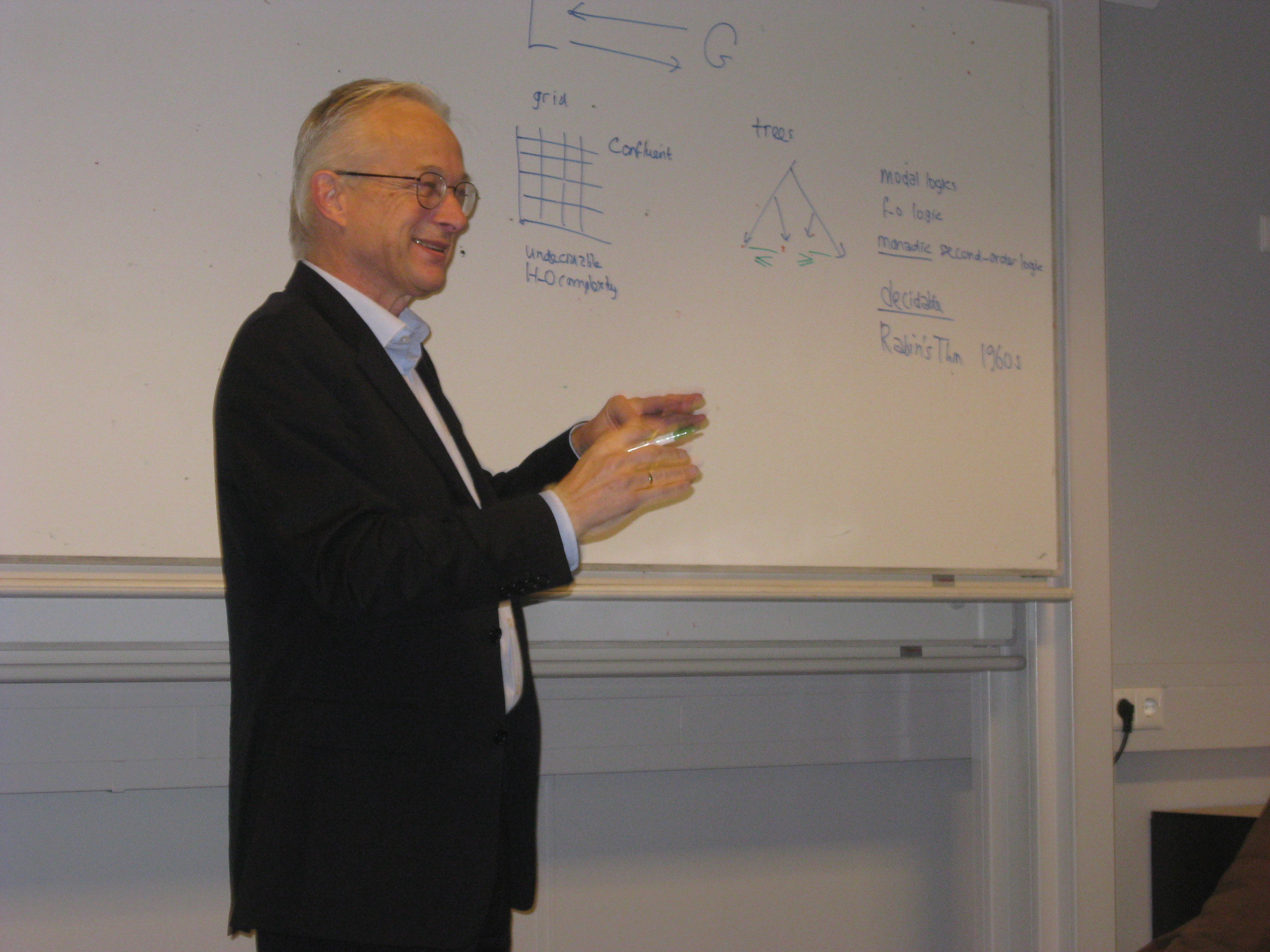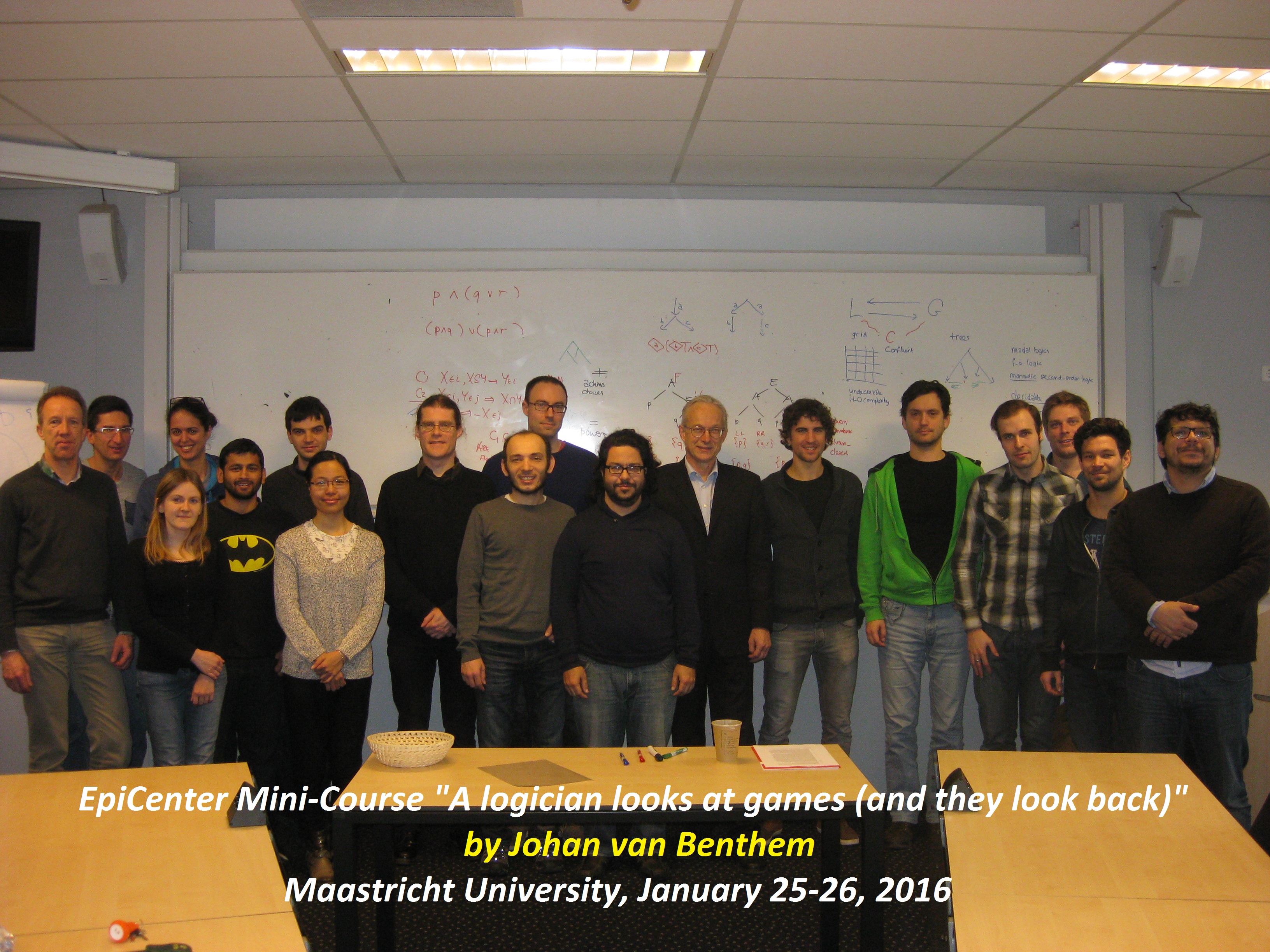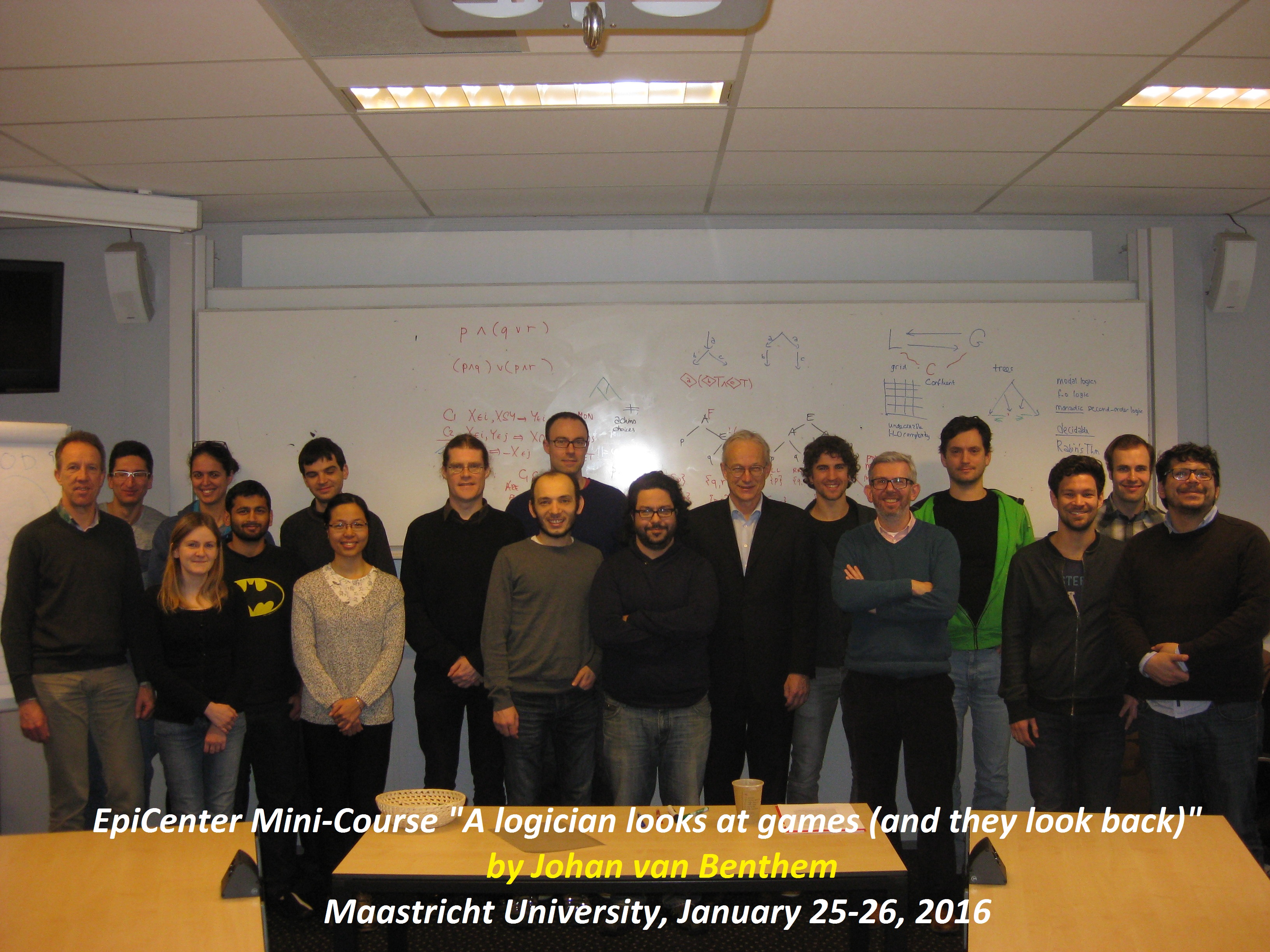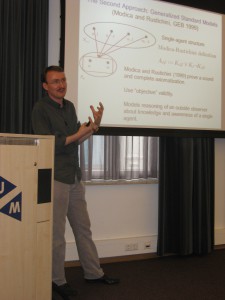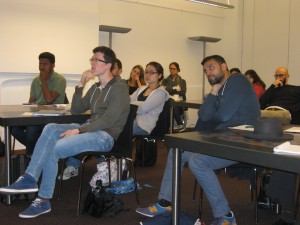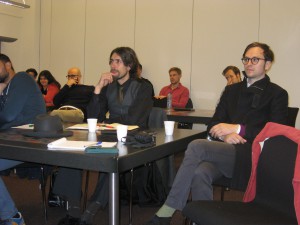An introduction to subjectivistic decision and game theory
December 6 and 7, 2021, by Gabriel Frahm
Summary:
In this course, Gabriel Frahm presents the subjectivistic approach to rational choice in order to develop a unified framework for game and decision theory. In the first two sessions he concentrates on decision theory and explains the subjectivistic approach, which serves as a basic foundation both of decision theory and game theory. The second two sessions focus on game theory. After making some general remarks about games and explaining why a unified framework makes sense at all, he discusses the three possible types of games, i.e., static, dynamic, and coherent games, in more detail. He presents some typical examples and explains the corresponding solution procedures. Whenever appropriate, he explains the main differences between the objectivistic, i.e., traditional, approach and the subjectivistic approach to game theory.
About Gabriel Frahm:
Gabriel Frahm is a German economist and mathematician. He holds the Chair of Applied Stochastics and Risk Management at the Helmut Schmidt University in Hamburg. His main research topics are robust covariance matrices, financial mathematics, as well as game and decision theory. He is considered a proponent of the subjectivistic approach to game and decision theory, which aims at developing a unified framework beyond Nash equilibrium. He has written the book “Rational Choice and Strategic Conflict: The Subjectivistic Approach to Game and Decision Theory”. For more information, visit his website: https://www.hsu-hh.de/stochastik/univ-prof-dr-gabriel-frahm
A logician looks at games (and they look back)
January 25 and 26, 2016, by Johan van Benthem
Summary:
Logic and games have many natural connections. Logic can be used to analyze games, but games can also be used to analyze the basic notions of logic themselves.
In the first two sessions of this course, Johan presents some samples of modern logical analysis of games, first viewed as a form of multi-agent process amenable to techniques from logic in computer science, and next as an arena for more general dynamics of information-driven social agency.
In the third session of the course Johan looks at how logic itself can be cast in terms of games, and discusses connections between the two directions of thought and mutual influence.
Literature: J. van Benthem, 2014, “Logic in Games”, The MIT Press, Cambridge MA.
About Johan van Benthem:
Johan van Benthem is Professor of Logic at Amsterdam University and Stanford University, and is the founding director of the well-known Institute of Logic, Language and Computation (ILLC) at Amsterdam. He is famous for his many pioneering contributions in different branches of logic, philosophy, and the connections between logic and games – which is the theme of this mini-course. And this list is certainly not complete.
For a detailed overview of his work, please visit his homepage: https://staff.fnwi.uva.nl/j.vanbenthem/index.html
Johan van Benthem has also been fundamental for the development of logic, especially modal logic, in the Netherlands, and has recently established important connections with universities in China.
2015
Unawareness in Games
June 22 and June 23, 2015, by Burkhard Schipper
Unawareness refers to the lack of conception rather than the lack of information. Players may be unaware of certain features of the game like payoff-relevant events, actions, or even other players. Moreover, in dynamic interaction, a player’s awareness of these features may change endogenously as other players may make her aware of some of it for strategic reasons. Unawareness has been explored in epistemic logic and game theory only recently.
Burkhard Schipper (University of California at Davis, USA) is one of the world’s leading experts on unawareness in games, and has done some important pioneering work in this area. We are certain his mini-course will be inspiring for everyone with an interest in decision theory, game theory or logic.
For more information about Burkhard Schipper, please visit his website: http://www.econ.ucdavis.edu/faculty/schipper/
Quantum Logic
January 19 and January 20, 2015, by Joshua Sack
This course provides an introduction to quantum logics. Work on quantum logic started with Birkoff and von Neumann as a tool for studying relationships among physical observables. The language of this logic is the same as for propositional logic, but the semantics is different. Later developments focused not just on the observables, but also the dynamics of a quantum system: for example what happens to a quantum system when certain actions are made, such as a measurement. Early development of quantum logic avoided the use of probability, though probability has been receiving an increasing amount of attention in quantum logics. This course will provide some background on quantum mechanics, and then discuss various quantum logics that have been developed, including issues concerning their proof theories, completeness, and decidability.
Joshua Sack is a logician, who currently works as a postdoctoral researcher at the Institute of Logic, Language and Computation (ILLC) at the University of Amsterdam. He is a member of the Dynamics Group there. In his research he has focused on dynamic epistemic logic, fixed-point logic and quantum logic, among other things. Joshua Sack will also be giving a course on Quantum Logic and Quantum Computation at the ILLC in 2015.
More information about Joshua Sack can be found on his homepage: http://www.joshuasack.info/
Slides: MaastrichtQuantumLogic
2014
Judgment Aggregation
by Christian List and Franz Dietrich
This course provided a first introduction to the theory of judgment aggregation. It explained the paradoxes of majority voting that originally motivated the field, generalized Arrow’s classical impossibility theorem to the case of judgement aggregation, introduced further generalizations of judgment aggregation and discussed possible judgement aggregation rules.
Franz Dietrich’s slides: morning and afternoon.
2013
Belief Revision Theory
by Sonja Smets
The course started with the main notions of “standard” Dynamic Epistemic Logic, arguing that this logic is appropriate for updating “hard information”, but that it is inappropriate for “soft information”. Then we moved to “soft” DEL and “belief-revision models”, discussing some important epistemic/doxastic notions and the relevance of these notions to fundamental issues in contemporary Epistemology. We focused in particular on various Belief Update operations and belief-revision policies.
2012
Decision Theory
by Richard Bradley
2011
Algorithmic Game Theory
by Peter Bro Miltersen
